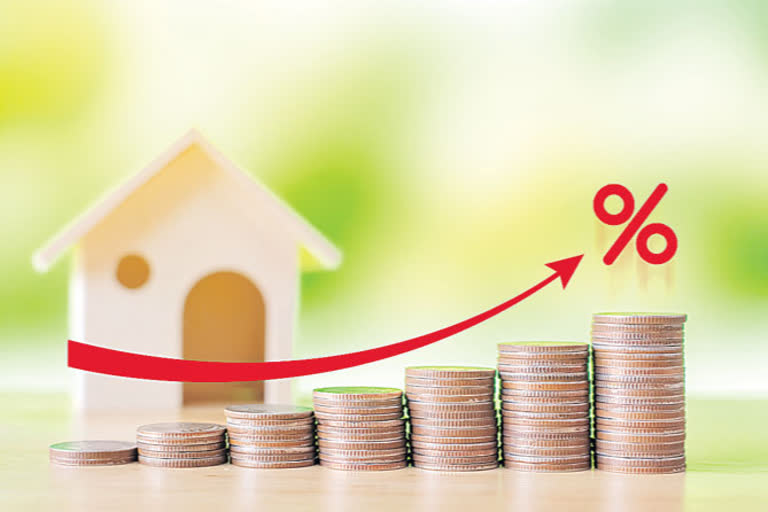Hyderabad:The Reserve Bank of India (RBI) has increased the key repo rate by 40 basis points (bps) for the first time since August 2018. With this, the interest rates available so far are starting to rise further. This is good news for fixed depositors and small savers. However, let's see what other investors and borrowers should do at a time when interest rates are rising.
Earlier, it was reported that the RBI may raise interest rates as inflation exceeded expectations. Already many banks have slightly revised their Marginal Cost of Funds Based Lending Rate (MCLR) rates. Now comes the Repo-based interest rates Repo Linked Lending Rate (RLLR). Banks are likely to change RLL rates in line with the repo rate hike. On the other hand, the Cash Reserve Ratio (CRR) hike will create a cash crunch for the banks. Therefore, banks may raise FDs interest rates to attract depositors. At this juncture, it is important to know how our financial plan should be and what precautions we have to take.
Long term debt funds
There are several types of debt funds. Under current market conditions, it is advisable to opt for liquid funds or short term funds. These may show slightly lower fluctuations compared to long-term funds. Bond rates are likely to fall as interest rates rise. Therefore, it is advisable to stay away from funds that are investing in long-term bonds. So, if you are already investing in such schemes .. you can try to take them back and divert them to short term debt schemes.
With a low rating
Many people are inclined towards corporate bonds and corporate deposits when interest rates are low. Generally, AAA, AA, A and A + rating bonds and deposits are safe. But, these come with a bit less interest. B, C and D ratings, which have a risk factor, get higher interest. This has led some to opt for riskier bonds for higher interest rates. Now that interest rates are rising, we need to be careful. You need to divert your investments to the ones with the highest ratings now. We have to try to withdraw deposits from low rating bonds as soon as possible.
Debt transfer
Those who are interested in buying a new house or taking a car on loan can look at the current interest rates. Now, banks are charging 7.5 per cent interest on housing loans while for cars it is less than 8.5 per cent. Some banks have recently announced some special offers on auto loans with a 7% to 7.5% interest rate. If you have already taken loans at more than 9% interest, try to convert them to banks offering low-interest loans.
Fixed deposits
Fixed deposits are likely to yield slightly higher returns with the rise in interest rates. While new depositors should look at those banks, which are providing good interest rates. Those who already have deposits should think. For example, suppose you now get 5.5% interest on your deposits--even a 5.75 per cent rise in interest rates would not be a huge advantage--therefore, if you want to change the deposit to other banks there will be a penalty. So, when interest rates rise by at least 1 per cent to 1.5 per cent then think it over. However, it will take some time for the hike in interest rates.
Small savings
PPF, Sukanya Samridhi Yojana and National Savings Certificates have fully secured income guarantee schemes. Investment in these schemes as they are tax-deductible under Section 80C. Interest rates on these are likely to rise in the wake of the RBI raising the repo rate. So, those who are interested in small savings can reconsider these.
Settle your loans faster
The impact of the repo rate hike will be largely on housing loans. So, try to pay off this long-term debt as fast as possible. For example, suppose you take a home loan of Rs 25 lakh at 7.25 per cent interest for 20 years. Then we pay Rs 2,37,113 per year at a rate of Rs 19,759.41 per month. Of this, if the interest in the first year is Rs 1,79,356, the actual amount is only Rs 57,757. Therefore, to reduce the interest burden one has to pay 5-10 per cent of the principal per annum or additionally deposit an EMI to the principal. For those who are going to repay the loan in two to three years, the increase in interest rates will not be a big burden.
Read LIVE: Reserve Bank of India governor's surprise address, rate hike feared
